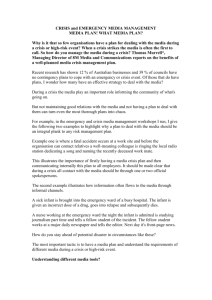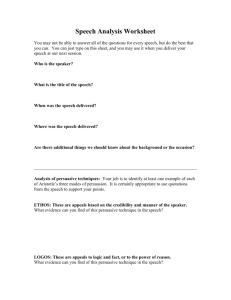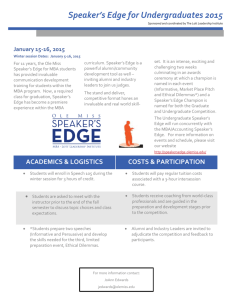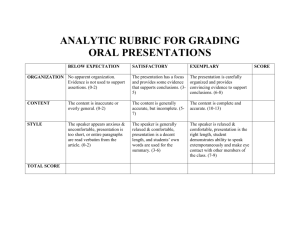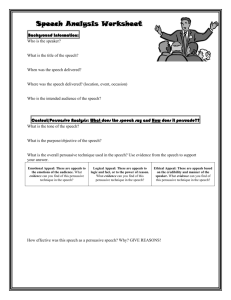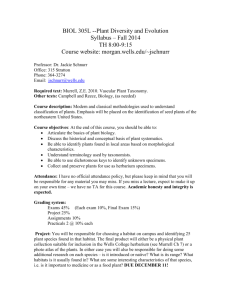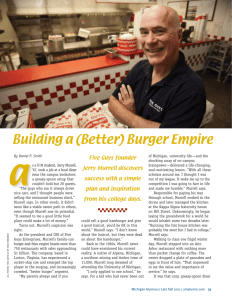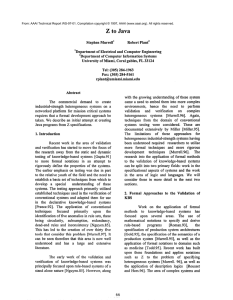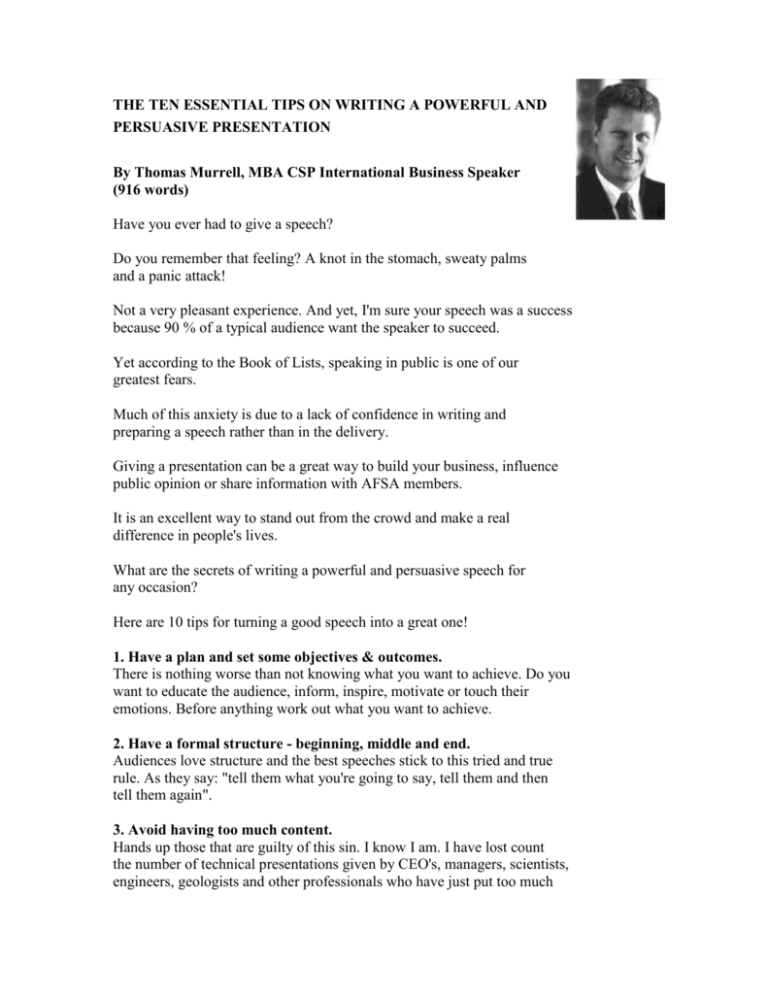
THE TEN ESSENTIAL TIPS ON WRITING A POWERFUL AND
PERSUASIVE PRESENTATION
By Thomas Murrell, MBA CSP International Business Speaker
(916 words)
Have you ever had to give a speech?
Do you remember that feeling? A knot in the stomach, sweaty palms
and a panic attack!
Not a very pleasant experience. And yet, I'm sure your speech was a success
because 90 % of a typical audience want the speaker to succeed.
Yet according to the Book of Lists, speaking in public is one of our
greatest fears.
Much of this anxiety is due to a lack of confidence in writing and
preparing a speech rather than in the delivery.
Giving a presentation can be a great way to build your business, influence
public opinion or share information with AFSA members.
It is an excellent way to stand out from the crowd and make a real
difference in people's lives.
What are the secrets of writing a powerful and persuasive speech for
any occasion?
Here are 10 tips for turning a good speech into a great one!
1. Have a plan and set some objectives & outcomes.
There is nothing worse than not knowing what you want to achieve. Do you
want to educate the audience, inform, inspire, motivate or touch their
emotions. Before anything work out what you want to achieve.
2. Have a formal structure - beginning, middle and end.
Audiences love structure and the best speeches stick to this tried and true
rule. As they say: "tell them what you're going to say, tell them and then
tell them again".
3. Avoid having too much content.
Hands up those that are guilty of this sin. I know I am. I have lost count
the number of technical presentations given by CEO's, managers, scientists,
engineers, geologists and other professionals who have just put too much
content into their presentations. Far too much for an audience to absorb remember even the best audiences face information overload after 20 minutes.
How do you overcome the content crisis? See Tip # 8.
4. Define who your audience is and use the most appropriate communication
channels to reach them.
Analyse how your audience likes to take in information - do they like to be
visually stimulated or do they enjoy just sitting back and listening. Or do
they like to get involved to touch and feel in a kinaesthetic way. Work out
the best mix of visual, audio and kinaesthetic and use this in your
speechwriting.
5. Research your speech using a range of sources.
Be a keen observer of the trends your audience is likely to be interested in
and keep of file of interesting articles and information. If you are time
poor- a few quick questions when meeting an audience just prior to a speech,
such as "what are the issues facing your business/industry/association at
the moment?" can really help target your presentation and build rapport.
6. Use personal stories, examples and metaphors to make intangible concepts
tangible.
In many cases you are trying to sell ideas and concepts in a speech. These
are intangible and often difficult for the audience to grasp. Personal
stories, examples and metaphors make the invisible visible.
7. Have a strong opening and closing.
People remember the opening - first impressions count! The closing is
important as it should reinforce the key message you want the audience to go
away with in their head after they have heard the presentation. Ending with
a 'call to action' can be a powerful way to get your audience to act on your
message.
8. Add value and extra detail through a handout.
Here's a tip: if you want to provide detail - put it in a handout! You can
get far more content across in the written form than in a speech. Always
refer to this in your presentation but hand it out after your speech so the
audience is not distracted reading through it while you talk. There is
nothing more soul destroying for a presenter to see the audience leafing
through written notes rather than looking at you!
9. Use short words and plain English.
The short words are always the best words. Avoid jargon. Use active words
instead of passive. This has far more impact in the minds of your listeners.
10. Evaluate and review on a regular basis.
There's nothing more powerful than to hear back a speech you've written. If
you are writing a speech for someone else always try and hear the speech or
at least get some feedback. Recording and listening back to a presentation
is the fastest way to improve your skills.
* Thomas Murrell, MBA is an international business speaker, marketing consultant and
award-winning broadcaster. To receive your free online media, marketing and
management newsletter Media Motivators sign up at www.8mmedia.com . Thomas can
be contacted directly at (08) 9388 6888. Visit Tom’s blog at
www.8mmedia.blogspot.com
© 2004 8M Media & Communications Thomas Murrell. All rights reserved worldwide.

